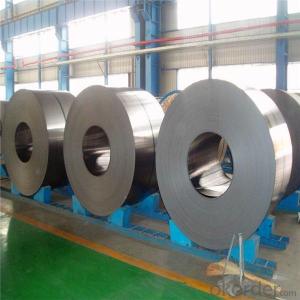Prime Cold Rolled Steel Sheet in Coil/China Supplier
- Loading Port:
- China main port
- Payment Terms:
- TT OR LC
- Min Order Qty:
- 10 m.t.
- Supply Capability:
- 10000 m.t./month
OKorder Service Pledge
OKorder Financial Service
You Might Also Like
Item specifice
PRODUCT DESCRIPTION
Cold Rolled Steel Coil
1. Width: 700~1500mm
2. Thickness: 0.18~1.80mm
3. Grade: JIS G3141-SPCC-1B, SPCC-1D
4. Coil Weight: 3~14MT
5. Coil ID: 508mm/610mm
6. Surface: Dull Finish/Bright Finish
7. Oil: Slight Oiled
8. MOQ: 10MT or by negotiation
With the professional produce lines, we can manufacture the best quality with competitive price !PRODUCT IMAGE
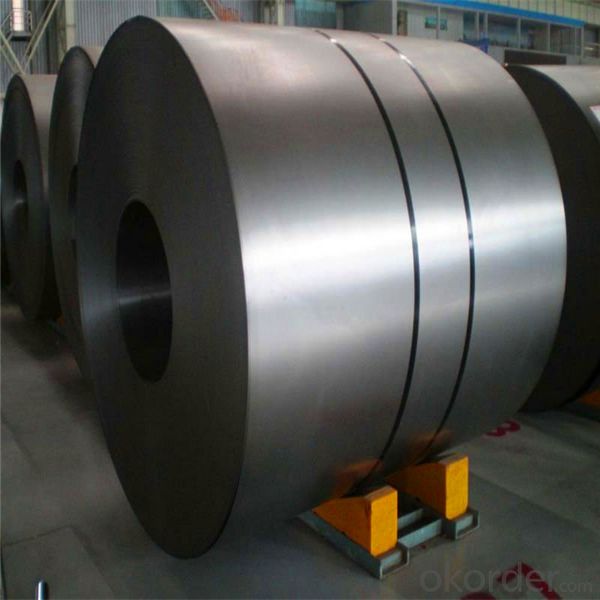
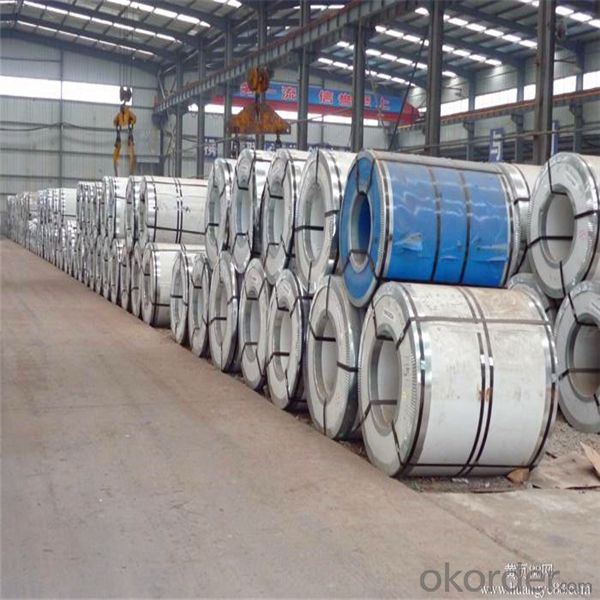
PRODUCTION PROCESS
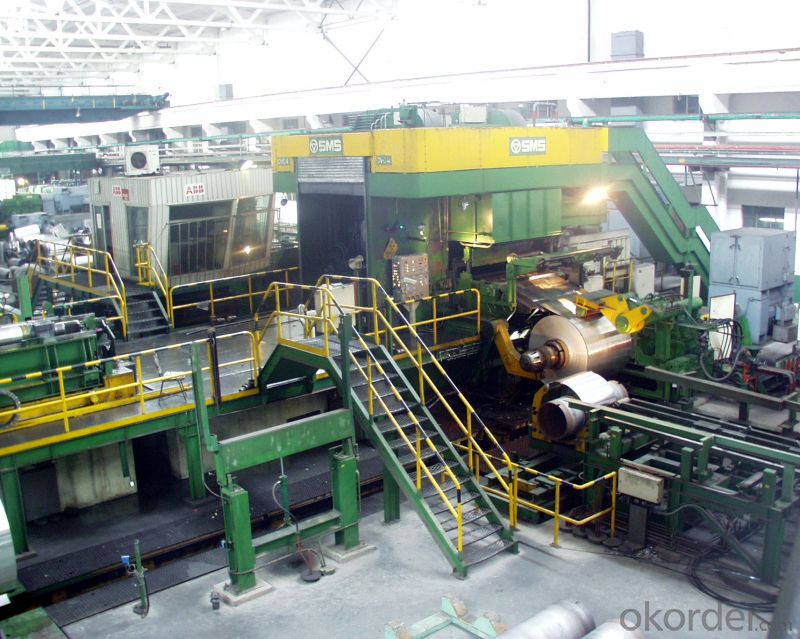
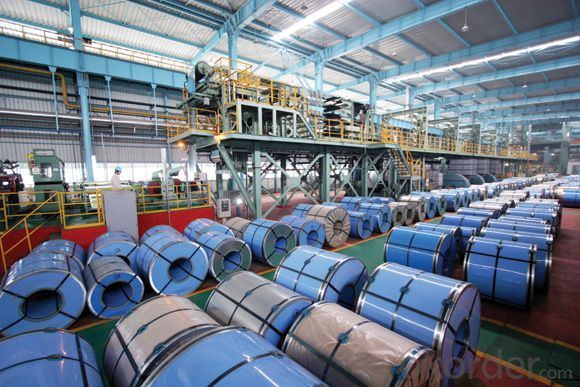
OUR SERVICE
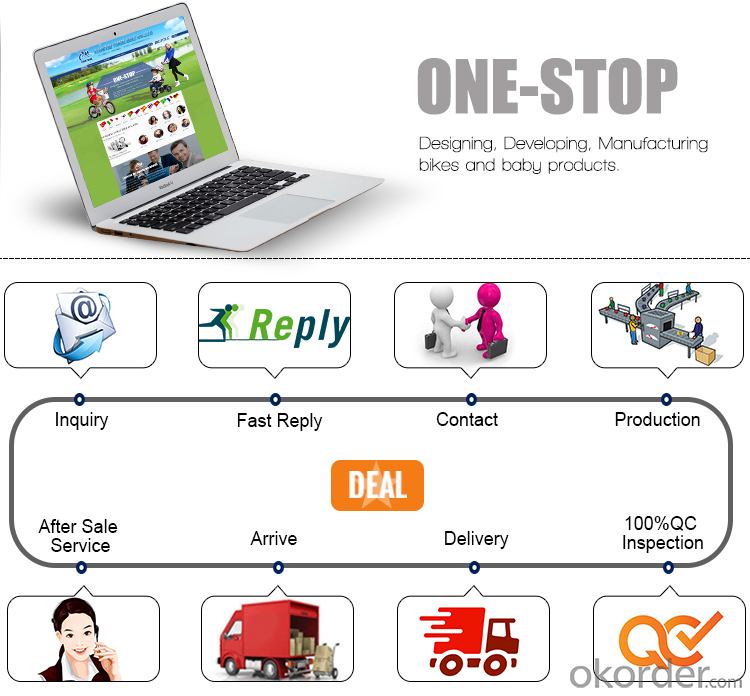
FAQ
1. Q: Where is your company located? How can I visit there?
A: Our company is located in Beijing, China. Welcome to visit us.
2. Q: Can I get sample and how long will it take?
A:Yes. We can supply sample. And you need to pay for courier.
3. Q: What's the MOQ?
A: Our MOQ is 12mt.
4. Q: What's the delivery time?
A: It will take about 30 days after TT or L/C.
5. Q: What is the payment terms?
A: T/T, L/C at sight
6. Q: How does your factory carry out quality control?
A: We attach great importance to quality control.Every part of our products has its own QC.
7. Q: What certificate do you have?
A: We have SGS, ISO9001 etc. Also we can apply any certificate if you need if the qty is OK.
- Q:How are steel coils used in the manufacturing of heat shields?
- Steel coils are used in the manufacturing of heat shields as they provide a durable and heat-resistant material to create the shield. The coils are typically cut and shaped into the desired form, allowing for precise customization and efficient production. The steel's high melting point and strength make it ideal for shielding against intense heat, ensuring the protection of surrounding components or structures.
- Q:What are the common methods of protecting steel coils from corrosion?
- Common methods of protecting steel coils from corrosion include applying a protective coating, such as zinc or paint, using corrosion inhibitors, storing coils in a controlled environment with low humidity, and implementing proper handling and packaging techniques to prevent moisture exposure.
- Q:which cost more: ALLOY, GUNMENTAL OR STAINLESS STEEL. GIVE ME AN IDEA OF THE COST OF EACH.
- Titanium alloy is. Its the hardest metal in the world and takes about 6 months to produce. I sell titanium juliets for 350.
- Q:How are steel coils inspected for weldability?
- A series of comprehensive tests and examinations are carried out to inspect the weldability of steel coils. The main objective of this inspection is to assess the quality and suitability of the steel coils for welding purposes. To begin with, a visual inspection is conducted to identify any visual defects or irregularities present on the surface of the coils. This includes checking for factors such as surface roughness, cracks, scratches, or any other imperfections that might affect the weldability. Following this, destructive testing methods, such as tensile testing and impact testing, are performed. Tensile testing measures the strength and ductility of the steel, ensuring that it meets the required mechanical properties for welding. Impact testing evaluates the steel's ability to resist brittle fracture, which is crucial in determining its weldability. In addition, non-destructive testing techniques like ultrasonic testing (UT) and magnetic particle inspection (MPI) are employed to detect any internal defects or discontinuities. UT utilizes high-frequency sound waves to identify hidden flaws within the steel, while MPI uses magnetic particles to identify defects on or near the surface. Moreover, chemical analysis is carried out to determine the composition of the steel and ensure that it meets the required specifications for welding. This analysis involves checking the levels of carbon, manganese, sulfur, and other elements that may impact the weldability and overall performance of the steel. Furthermore, weldability testing is performed to evaluate how the steel responds to welding processes. This involves conducting various welding trials using different techniques and parameters to assess the steel's behavior during welding, including its susceptibility to cracking, distortion, or other welding-related issues. In conclusion, the inspection of steel coils for weldability is a comprehensive process that involves visual inspection, destructive testing, non-destructive testing, chemical analysis, and weldability testing. Through these thorough inspections, manufacturers can ensure that the steel coils meet the required standards and are suitable for welding applications.
- Q:Can steel coils be stamped?
- Yes, steel coils can be stamped.
- Q:Is it possible that stainless steel watches get rust. Any experience? Thanks.
- Under certain conditions, even stainless steel will rust. They include: Exposure to some noble metals (copper/silver) in a corrosive atmosphere - and why stainless must be separated from silver or silver plate in a dishwasher. Stainless steel will pit if touching silver as many DW detergents are rich in chlorine. Under some conditions, and depending on your skin chemistry, if you wear a copper bracelet on the same arm as the watch, the surface of the watch will pit. If you commonly are exposed to some kinds of welding fluxes, if you are exposed to water with high salt concentration and you do not rinse off the watch after exposure, that can pit the surface. Stainless Steel is no more than corrosion-resistant, not corrosion-proof. Most of the time under most conditions, it is fine. But not all of the time under every condition. As it happens, what affects SS the most is any kind of electrolysis due to galvanic action involving halogen salts.
- Q:What are the different types of steel coil grades and specifications?
- There are several different types of steel coil grades and specifications available in the market. These grades and specifications are designed to meet various industry requirements and applications. Some of the commonly used steel coil grades and specifications are: 1. Hot Rolled Steel Coils: These coils are produced by heating the steel above its recrystallization temperature and then rolling it at a high temperature. Hot rolled steel coils are commonly used in applications where dimensional accuracy and surface finish are not critical. 2. Cold Rolled Steel Coils: Cold rolled steel coils are produced by further processing hot rolled coils through cold reduction mills. This process results in improved surface finish, tighter tolerances, and higher strength compared to hot rolled coils. Cold rolled steel coils are widely used in automotive, construction, and electrical industries. 3. Galvanized Steel Coils: Galvanized steel coils are coated with a layer of zinc to protect them from corrosion. This process, known as galvanization, enhances the durability and longevity of the steel coils. Galvanized steel coils are commonly used in applications such as roofing, fencing, and automotive body parts. 4. Stainless Steel Coils: Stainless steel coils are made from a combination of iron, chromium, and other elements that provide excellent corrosion resistance and high strength. These coils are widely used in industries such as food processing, chemical, and medical, where hygiene and corrosion resistance are critical. 5. High-strength Low-alloy (HSLA) Steel Coils: HSLA steel coils are designed to have higher strength and improved formability compared to conventional carbon steels. These coils are commonly used in structural and transportation applications, where weight reduction and high strength are required. 6. Electrical Steel Coils: Electrical steel coils, also known as silicon steel or transformer steel, are specifically designed for use in electrical equipment such as transformers, motors, and generators. These coils have low core losses and high magnetic permeability, making them ideal for efficient energy transfer. 7. Tool Steel Coils: Tool steel coils are specially formulated to have high hardness, wear resistance, and toughness. These coils are commonly used in the manufacturing of cutting tools, dies, and molds. These are just a few examples of the various types of steel coil grades and specifications available in the market. The selection of the appropriate grade and specification depends on the specific application requirements, such as strength, corrosion resistance, formability, and surface finish.
- Q:I mean, besides the light weight and other graces of Aluminium and Carbon, Steel frames are absolutely out-dated and they have nothing to do these days... or it is still possible to enjoy a nice ride on our heavy old pals?
- Au contraire; many great bikes are still steelies. Today's steel is much lighter than 10 yrs ago.
- Q:What temp does fire have to be to melt steel?
- You need about 2800 degrees to melt steel.
- Q:How are galvanized steel coils different from regular steel coils?
- Galvanized steel coils differ from regular steel coils in terms of their protective coating. Galvanized steel coils are coated with a layer of zinc, which provides a protective barrier against corrosion and rust. This process, known as galvanization, involves dipping the steel coils into a bath of molten zinc or applying zinc onto the surface through various methods. Regular steel coils, on the other hand, do not have this protective coating, making them more susceptible to corrosion and rust. The zinc layer on galvanized steel coils not only acts as a physical barrier but also provides sacrificial protection, meaning that if the coating gets scratched or damaged, the zinc sacrifices itself to protect the underlying steel from corrosion. This makes galvanized steel coils highly durable and suitable for applications that require resistance to harsh environmental conditions, such as outdoor construction projects, automotive manufacturing, and the production of household appliances.
1. Manufacturer Overview |
|
|---|---|
| Location | |
| Year Established | |
| Annual Output Value | |
| Main Markets | |
| Company Certifications | |
2. Manufacturer Certificates |
|
|---|---|
| a) Certification Name | |
| Range | |
| Reference | |
| Validity Period | |
3. Manufacturer Capability |
|
|---|---|
| a)Trade Capacity | |
| Nearest Port | |
| Export Percentage | |
| No.of Employees in Trade Department | |
| Language Spoken: | |
| b)Factory Information | |
| Factory Size: | |
| No. of Production Lines | |
| Contract Manufacturing | |
| Product Price Range | |
Send your message to us
Prime Cold Rolled Steel Sheet in Coil/China Supplier
- Loading Port:
- China main port
- Payment Terms:
- TT OR LC
- Min Order Qty:
- 10 m.t.
- Supply Capability:
- 10000 m.t./month
OKorder Service Pledge
OKorder Financial Service
Similar products
New products
Hot products
Related keywords
